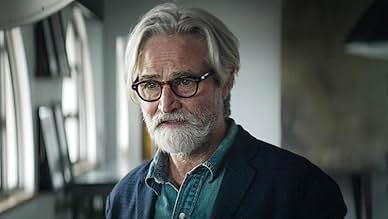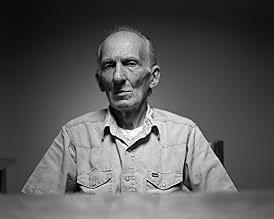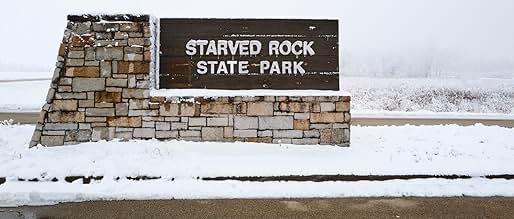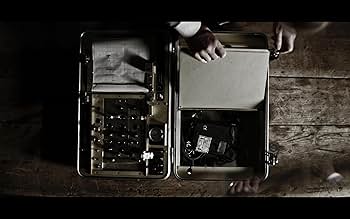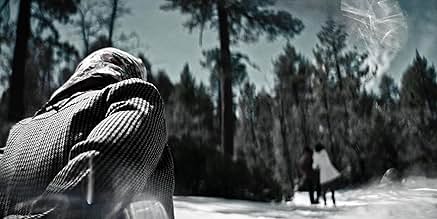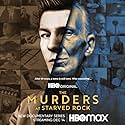CALIFICACIÓN DE IMDb
6.6/10
1.6 k
TU CALIFICACIÓN
Dirigido, rodado y editado por Hunter James Cox, este documental de 1960 trata de tres mujeres de Riverside Chicago que van de vacaciones al parque estatal de Starved Rock y son víctimas de ... Leer todoDirigido, rodado y editado por Hunter James Cox, este documental de 1960 trata de tres mujeres de Riverside Chicago que van de vacaciones al parque estatal de Starved Rock y son víctimas de un triple homicidio.Dirigido, rodado y editado por Hunter James Cox, este documental de 1960 trata de tres mujeres de Riverside Chicago que van de vacaciones al parque estatal de Starved Rock y son víctimas de un triple homicidio.
- Premios
- 1 nominación en total
Explorar episodios
Opiniones destacadas
This is a compelling story but as with many documentaries the editing and production is poorly done. A shame really since the ingredients are all there for an awesome documentary.
All they had to do is keep it sequential and make sure the information presented doesn't conflict. They weren't able to do this so it was a jumbled mess and in the end you didn't know what to believe. That completely contradicts the point of a documentary.
I will say that David Raccuglia did seem genuine and passionate about the subject and pursuit of the truth but once again the direction and production missed the mark. I wish I didn't waste my time on this one. I am now interested though but will rely on other sources if I want more information.
All they had to do is keep it sequential and make sure the information presented doesn't conflict. They weren't able to do this so it was a jumbled mess and in the end you didn't know what to believe. That completely contradicts the point of a documentary.
I will say that David Raccuglia did seem genuine and passionate about the subject and pursuit of the truth but once again the direction and production missed the mark. I wish I didn't waste my time on this one. I am now interested though but will rely on other sources if I want more information.
Compelling documentary which should really have benefited from less information about the documentary maker. Should have been half as long too, as a result there is a lot of repitition. Clear wrongful conviction, manufactured and biased evidence. Understandably limited footage but it does drag on. Better editing would have improved the documentary.
As "The Murders at Starved Rock" (2021 release; 3 episodes of 58 min each) opens with Episode 1 "The Bogeyman", we are at the Illinois state park called Starved Rock, and we learn that three Chicago women were brutally murdered there on March 16, 1960, sending shockwaves to the surrounding communities. We then get to know David Racugglia, a native from nearby Lasalle, IL, whose father was the prosecutor in the ensuing murder trial and who has been haunted by this case for decades. "I just want to get to the truth", he comments... At this point we are 10 minutes into Episode 1 of this TV documentary mini-series.
Couple of comments: this is the directing debut of Emmy-winning editor Jody McVeigh-Schultz ("McMillion$"). In this mini-series, he reassesses what happened now over 60 years ago. These murders shocked the surrounding communities, and in fact the nation, and the pressure to find the killer was immense on all parties involved (local and state authorities). Did they get the right man? That is the crux of this mini-series. McVeigh-Schultz tracks down many of the people involved, also benefiting from an earlier attempt (in 2005) by David Raccuglia in making his own documentary of it all. Just based on Episode 1, which I watched the other night, it feels like the director is approaching this even-handedly, and we are to make up our own minds whether the suspect (Chester Weger, a dishwasher at the Starved Rock Lodge) is or isn't the murderer. But what really is striking is watching the archive footage (mostly TV news clips) of that era, with white men literally controlling everything, which now feeling eerily strange and completely out of touch with today (of course it was 60 years ago after all).
"The Murders at Starved Rock" recently premiered on HBO Max, and is now available on HBO On Demand and HBO Max (where I caught it). I plan on seeing Episodes 2 and 3 very soon. I may have to revise my original rating of 6 stars, depending on how these remaining episodes play out. If you like true-crime documentaries, I'd readily suggest you check this out and draw your own conclusion.
Couple of comments: this is the directing debut of Emmy-winning editor Jody McVeigh-Schultz ("McMillion$"). In this mini-series, he reassesses what happened now over 60 years ago. These murders shocked the surrounding communities, and in fact the nation, and the pressure to find the killer was immense on all parties involved (local and state authorities). Did they get the right man? That is the crux of this mini-series. McVeigh-Schultz tracks down many of the people involved, also benefiting from an earlier attempt (in 2005) by David Raccuglia in making his own documentary of it all. Just based on Episode 1, which I watched the other night, it feels like the director is approaching this even-handedly, and we are to make up our own minds whether the suspect (Chester Weger, a dishwasher at the Starved Rock Lodge) is or isn't the murderer. But what really is striking is watching the archive footage (mostly TV news clips) of that era, with white men literally controlling everything, which now feeling eerily strange and completely out of touch with today (of course it was 60 years ago after all).
"The Murders at Starved Rock" recently premiered on HBO Max, and is now available on HBO On Demand and HBO Max (where I caught it). I plan on seeing Episodes 2 and 3 very soon. I may have to revise my original rating of 6 stars, depending on how these remaining episodes play out. If you like true-crime documentaries, I'd readily suggest you check this out and draw your own conclusion.
REAL journalists are taught that the worst thing a reporter or documentarian can do is insert himself into a story. It forces a POV on the viewers and clouds whatever truth the photograph, story or documentary tries to show. The documentary becomes about confirming the bias of the reporter and not presenting the facts.
However, the internet, the camera phone and social media have all but eliminated this rule of journalistic integrity. People no longer seek facts from newspapers, but turn to cable news channels that reflect what they want the news to be, not what it is. It has lead to a generation that believes the real world did not exist until they were born, and that, because they are so smart, no criminal case verdict is justifiable until they have investigated it.
In this series, Dave Raccuglia, a hair dresser (you can't make this up), decides to "reopen" a case prosecuted by his father against a man who confessed to the murder of three women in a park in Illinois in 1960. He believes that the killer, a man named Wegler, was railroaded by his father because his father was up for re-election. The hair dresser is deeply invested in absolving Wegler, and, although he has no background in forensics, law enforcement, etc., Raccuglia seems to think that interviewing countless locals for their opinions is the same thing as "investigation." He only interviews the people who agree with him, and the families of the victims are almost completely ignored.
It's bad journalism, bad documentary and bad television. It reminds me of the movement spearheaded by John Waters to free Leslie Van Houten, in which a group of LA hipsters are invested in getting Van Houten out of jail because "she's a delightful person who didn't kill Sharon Tate. She was brainwashed!"
Isn't it always easier to love a former prom Queen? But Van Houten did stab the LoBiancos. She admitted it. And would those hipsters would be spending as much time trying to free Leonard Peltier or any other nonwhite, non groovy, non Manson girl?
My college roommates was Sharon Tate's first cousin. She went to be with her aunt and Sharon's sister every time a parole hearing happened. She said it was, for them, like grinding glass into their hearts to hear hangers on and hipsters explain to her why the Manson family should be freed. What was it like for the LoBiancos? Never mind, she was a prom Queen, you know. She's too delightful to stay in jail.
People, your narcissistic desire to become famous by freeing someone famous may make you feel important but there is no virtue in being an true crime junkie. You are grinding glass into the hearts of the families of the dead. You are a true crime tourist, visiting their pain. The families have to live there.
We have a system of crime and punishment in our country that is imperfect. It executes innocent men and women, and it frees guilty ones. The weight of the injustice can occasionally seem unbearable. But that doesn't mean that all convictions were wrong. Nor does it mean that they were right.
Thee way to change it isn't by making armchair detectives of bored hairdressers. It's by making justice more equal, changing sentencing guidelines, removing politics from the prosecutorial process, and getting rid of confirmation bias.
This documentary series is one of the problems with the system, not one of the solutions. There are better true crime reporters on YouTube, and HBO ought to be ashamed of itself for broadcasting it.
A far better subject here would have been the psychological examination of the problems in the relationship between Dave Raccuglia and his father that prompted him to make this mess. And it would be far better for the true crime aficionados to realize that the crimes happened to real people with real families, and are not cosplay for their own psychiatric problems.
However, the internet, the camera phone and social media have all but eliminated this rule of journalistic integrity. People no longer seek facts from newspapers, but turn to cable news channels that reflect what they want the news to be, not what it is. It has lead to a generation that believes the real world did not exist until they were born, and that, because they are so smart, no criminal case verdict is justifiable until they have investigated it.
In this series, Dave Raccuglia, a hair dresser (you can't make this up), decides to "reopen" a case prosecuted by his father against a man who confessed to the murder of three women in a park in Illinois in 1960. He believes that the killer, a man named Wegler, was railroaded by his father because his father was up for re-election. The hair dresser is deeply invested in absolving Wegler, and, although he has no background in forensics, law enforcement, etc., Raccuglia seems to think that interviewing countless locals for their opinions is the same thing as "investigation." He only interviews the people who agree with him, and the families of the victims are almost completely ignored.
It's bad journalism, bad documentary and bad television. It reminds me of the movement spearheaded by John Waters to free Leslie Van Houten, in which a group of LA hipsters are invested in getting Van Houten out of jail because "she's a delightful person who didn't kill Sharon Tate. She was brainwashed!"
Isn't it always easier to love a former prom Queen? But Van Houten did stab the LoBiancos. She admitted it. And would those hipsters would be spending as much time trying to free Leonard Peltier or any other nonwhite, non groovy, non Manson girl?
My college roommates was Sharon Tate's first cousin. She went to be with her aunt and Sharon's sister every time a parole hearing happened. She said it was, for them, like grinding glass into their hearts to hear hangers on and hipsters explain to her why the Manson family should be freed. What was it like for the LoBiancos? Never mind, she was a prom Queen, you know. She's too delightful to stay in jail.
People, your narcissistic desire to become famous by freeing someone famous may make you feel important but there is no virtue in being an true crime junkie. You are grinding glass into the hearts of the families of the dead. You are a true crime tourist, visiting their pain. The families have to live there.
We have a system of crime and punishment in our country that is imperfect. It executes innocent men and women, and it frees guilty ones. The weight of the injustice can occasionally seem unbearable. But that doesn't mean that all convictions were wrong. Nor does it mean that they were right.
Thee way to change it isn't by making armchair detectives of bored hairdressers. It's by making justice more equal, changing sentencing guidelines, removing politics from the prosecutorial process, and getting rid of confirmation bias.
This documentary series is one of the problems with the system, not one of the solutions. There are better true crime reporters on YouTube, and HBO ought to be ashamed of itself for broadcasting it.
A far better subject here would have been the psychological examination of the problems in the relationship between Dave Raccuglia and his father that prompted him to make this mess. And it would be far better for the true crime aficionados to realize that the crimes happened to real people with real families, and are not cosplay for their own psychiatric problems.
The Murders at Starved Rock is the worst of the "personal history murder mystery genre". In this documentary, a lost former hair dresser attempts to investigate a 1960s murder in his hometown, that his father prosecuted the murderer for. The filmmaker combines endless hearsay and conspiracy theories to cast doubt on the case. Unfortunately, the story is not really about the murder, rather it is about a lost son trying to prove to his accomplished father that he is a man of substance. This is a story that could have been resolved in therapy. The director's hair cuts, facial hair, and eyewear are funniest and best part of this series.
¿Sabías que…?
- ConexionesFeatured in Zodiac Killer Project (2025)
Selecciones populares
Inicia sesión para calificar y agrega a la lista de videos para obtener recomendaciones personalizadas
Detalles
- Fecha de lanzamiento
- País de origen
- Sitio oficial
- Idioma
- También se conoce como
- The Starved Rock Murders
- Productoras
- Ver más créditos de la compañía en IMDbPro
- Tiempo de ejecución58 minutos
- Color
Contribuir a esta página
Sugiere una edición o agrega el contenido que falta

Principales brechas de datos
By what name was The Murders at Starved Rock (2021) officially released in India in English?
Responda

